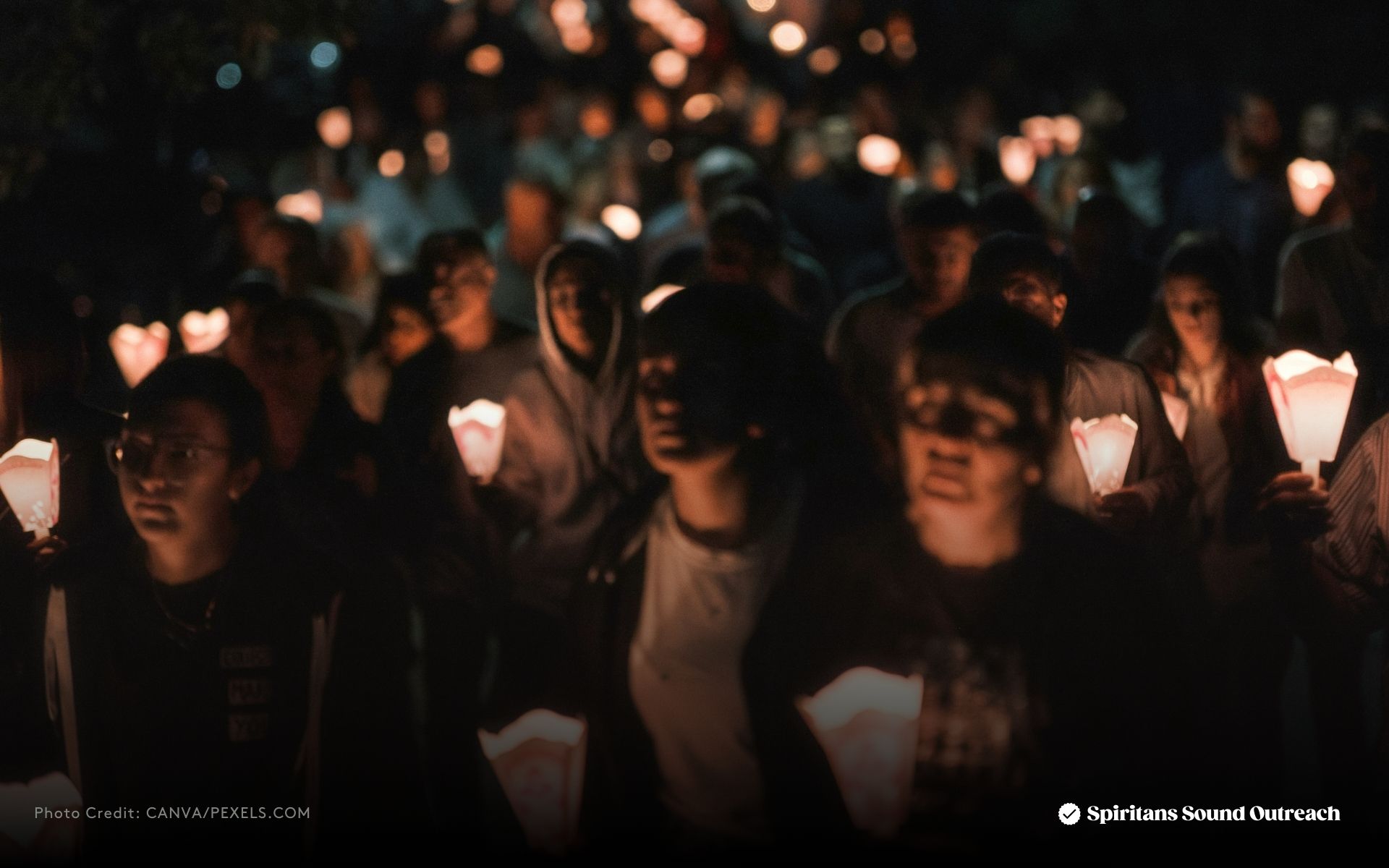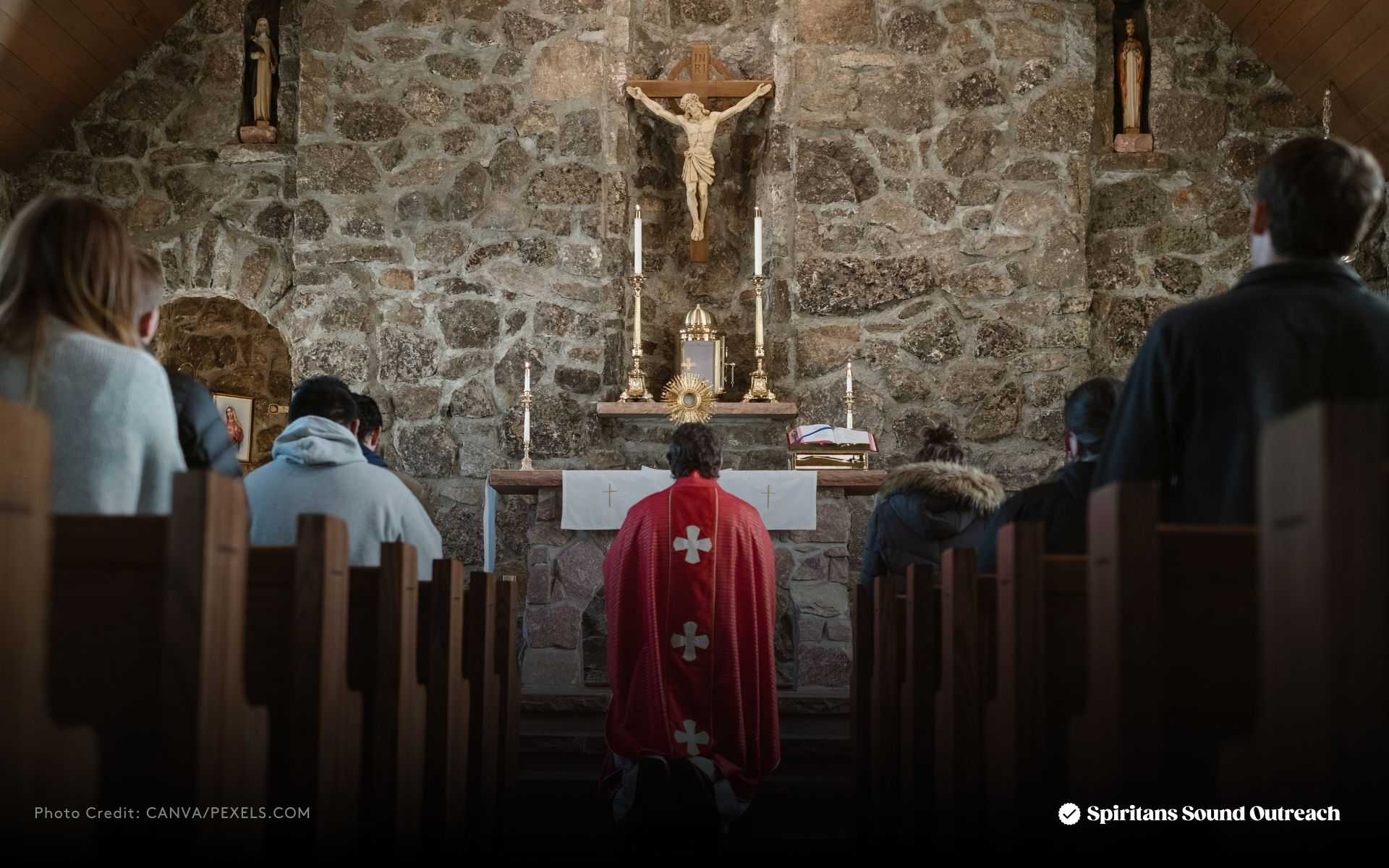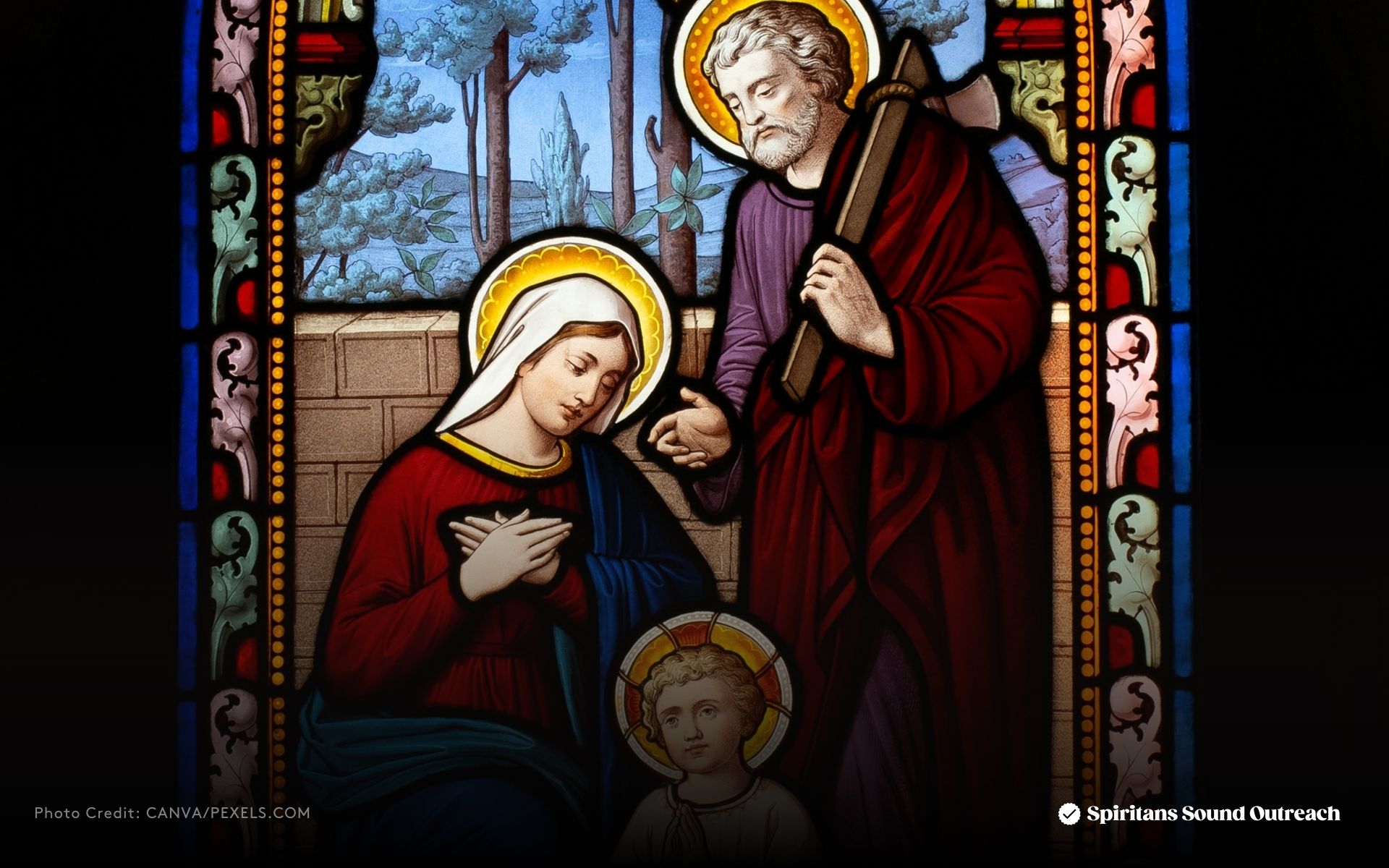HOMILY OF THE SOLEMNITY OF ALL SAINTS
Rev 7:2-4,9-14; Ps 24:1-6; 1 Jn 3:1-3; Matt 5:1-12
The Church celebrates today the Solemnity of all Saints, men and women who lived as humans and through the grace of God, triumphed over sin and death and are now reigning with Christ in heaven, inspiring and praying for those of us who are still on our way to eternity.
Why does the Church need to celebrate All Saints’ day when almost every day of the Church’s liturgical calendar, from the beginning of the year to the end, has a Saint day? The reason for this is that it is not every Saint’s name that is present in the Church’s calendar since not all Saints are known. There are so many unknown, or unsung Saints, who may have been forgotten, or never been specifically honoured or canonized. So once a year, the Church sets aside a day to honour all these Saints both the ones that are known and unknown. So All Saints’ day is like a combined birthday celebration of the heroes of our faith: holy men and women who have “washed their robes and made them white in the blood of the Lamb” (Rev. 7:14).
Today’s Solemnity reminds us of the communion of the Saints, which forms part of the beliefs of the Catholic Church. We believe that there is a connection among the members of the Christian Church, both living and dead; those in heaven (triumphant Church), those in purgatory (suffering Church) and those on earth (militant/pilgrim Church). We are all united into the body of Christ. With this Solemnity, we look up to the Saints as examples for us and imitate them. Knowing that some people have already succeeded in this journey, we gain strong courage to forge on.
A major question in the hearts of many people is “isn’t celebrating all Saints’ day idolatry? Does it not amount to somehow worshiping them?” Certainly not. The Church has already distinguished between worship given to God alone which is called “latria” and veneration which may be given to the Saints, which is known as “dulia”. The highest form of veneration is due to the Blessed Virgin Mary and it is known as “hyperdulia”. It is wrong to treat a Saint like God. But when a Saint is treated like a Saint, there is no idolatry in that. Therefore, it is not out of place to ask the Saints to pray for us. If we can ask our priests or pastors to pray for us, then how much more asking the Saints who are certainly at right with God to pray for us. The intercessions of the Saints are very effective.
Another attack against the Catholic Church on devotion to the Saints is that people often ask, why do we honour ‘dead’ people? Why do we ask them to pray for us? Whereas St Paul says “there is one God, and there is one mediator between God and men, the man Christ Jesus” (1Tim 2:5). We can see that this argument is not tenable. To refer to the Saints as simply dead people is to doubt the word of our Lord Jesus Christ Himself that says: “I am the resurrection and the life; he who believes in me, though he die, yet shall he live, and whoever lives and believes in me shall never die.” (John 11:25-26).
In the same vein, when we argue that Jesus Christ is the only Mediator between God and men, we tend to forget that Jesus is not a personal assistant to God. Jesus Christ Himself is God. The Saints are less than God, but being in God’s presence; they intercede to God on our behalf just as we intercede for our fellow human beings by praying for them.
Nevertheless, the main reason we honour the Saints is not that we cannot pray to God directly, our belief in the intercession of the Saints stems from our belief in the existence of heaven as a place where the souls of righteous live forever. We also believe in the intercession of the Saints because, as human beings, we need role models. The saints are constant reminders that it is possible to live out the beatitudes which we hear in today’s Gospel passage, that one doesn’t need to have two heads to be holy, that we can be fully human and fully Christ-like. So, the Saints are the greatest encouragement we need to live out our Christian virtues knowing that if they could attain holiness, we too can be holy.
However, popular opinion places holiness beyond the reach of ordinary people. Many people have the mistaken notion that being a saint is beyond their reach. For them Saints are unsual types, people who never committed a sin in their lives. They forget that becoming a Saint is the long and painful struggle of a lifetime goal in life. We need to remind ourselves that the Saints were men and women like us who lived sometime in the past. They too walked and faced the situations of earthly life as we do today. They were tempted, they fell, they sinned, but they always had courage to rise again and continue the struggle of Christian life.
Today we celebrate them as the triumphant Church; they glow before us as examples and practical guide in the journey to eternity. These are the countless souls in heaven who have washed their robes white. To be like them, we too must wash our robes white through prayers and obedience to God’s word.
Today’s gospel outlines for us how to wash our robes white again. We wash our robes white through the practice of Christian virtues. According to the gospel reading, happiness or blessedness is reserved to the poor in spirit, those who hunger and thirst for righteousness, the merciful, the peacemakers, the mourners, the meek, those who persecuted in the cause of righteousness, and the single hearted. And in the word of St John in the first reading, ‘these are the people who have been through the great trial and are washed in the blood of the Lamb.’ In the word of Psalmist, since God is pure and holy, the only people that can see Him are “those men and women whose hands are clean and hearts pure; who desire not worthless things.
Lastly, as we celebrate today All Saints’ day, we are being inspired by them so that we may be bolder in walking the path of the Gospel. The Saints are set up for us as models to imitate in our following of Christ. They were human beings like us. They include our own ancestors and close relatives who have gone before us. If they could be Saints, why you and I cannot be?
May the good Lord bless our aspiration for Sainthood, and may He help us to live the Beatitudes in our lives so that we can live in His presence for ever. Amen!
Stay blessed!








